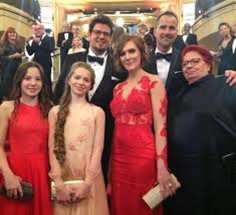SING
MINDENKI

Best Live Action Short Movie by Kristof Deak 2017
Trailer:
der Film:
https://dailynewshungary.com/hungarian-film-in-the-oscar-finals/
Hungarian film Mindenki (Sing) has won an Oscar for best short film, it was announced this morning.
The 25-minute film, directed by Kristóf Deák, won the Academy Award for Best Live Action Short at the star studded Oscars ceremony in Los Angeles.
The short flick has become the first film directed by a Hungarian to win in this category and the second Hungarian film to win an Academy Award in just one year.
Sing was nominated for the Oscar after beating over 70 contenders to make the short-list.
Sing has already won the Grand Prix prize at the Short Shorts Film Festival in Tokyo, the People’s Choice Award at the Toronto International Film Festival’s Kids category, and an award at the Chicago International Children’s Film Festival.
The film is based on a true story and is set in Budapest in 1991, running for just 25 minutes. It follows an award-winning school choir, their teacher and a new girl in class whose arrival might expose the dark truth behind their fame.
With this Oscar win, Sing has reached the same level of acclaim as the Hungarian film Son of Saul, which won the Oscar for Best Foreign Film at last year’s ceremony. Son of Saul also won other major international awards including Best Film not in the English language at the BAFTAs.
Last year, Son of Saul was Hungary’s ninth nomination for the Best Foreign Language Film at the Oscars and the second winner ever, after István Szabó’s Mephisto in 1981. It was also the first Hungarian movie nominated for the Academy Awards since 1988.
Prime Minister Viktor Orbán called the film’s Oscar win a “great day for Hungarian filmmaking” and said, “Thank you to everyone.”
Much of the action in Hungary’s movie industry can be traced to Andy Vajna’s efforts to promote Hungary in the industry.
Vajna, who produced the Rambo and Terminator movie series and some 50 other Hollywood films, acknowledges that Hungarian film producers and critics thought he would ruin their industry, which has a proud history dating to the 1920s.
Vajna retired from Hollywood in 2010 and returned home to a Hungarian film industry that was in crisis. The Hungarian Motion Picture Public Foundation, which helped fund Hungarian films, was insolvent, with 55 million USD in debt.
Vajna, with support from Hungarian Prime Minister Viktor Orbán, brokered the transfer of state-owned film studios and other property to a new Hungarian film fund headed by Vajna.
The deal used government funds to pay off the old foundation’s debts, and started a new funding and production scheme for the industry.
The new National Film Fund was to fund 10 locally produced films every year. Vajna hired people to review potential scripts and improve films before cameras started rolling. The results so far: 67 full-length Hungarian feature films and co-productions, 140 festival wins and a Golden Globe Award in 2015 and Best Foreign Language Film Oscar last year, both for Son of Saul.
The new film foundation also worked with Hungarian universities to train young workers for the industry. It helped stimulate the construction of three studio compounds, including the Origo Film Group and Korda Studios (credits include The Martian), in which Vajna owns a share. And the Hungarian parliament boosted its rebate program for production expenses from 20 to 25 percent of everything spent in Hungary, among the most generous anywhere.
Quelle: http://abouthungary.hu/news-in-brief/hungarian-film-sing-wins-oscar-for-best-short-film/



